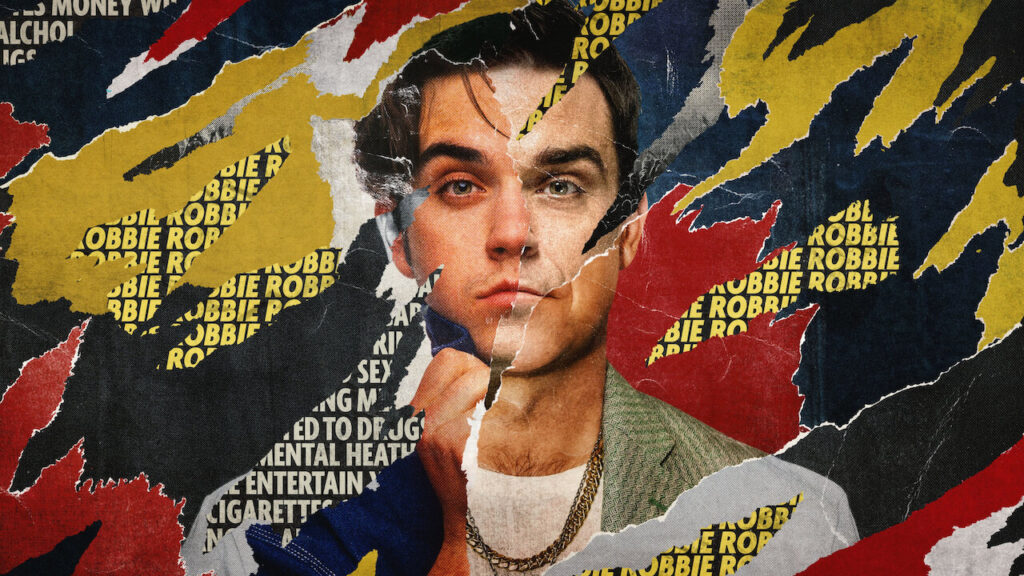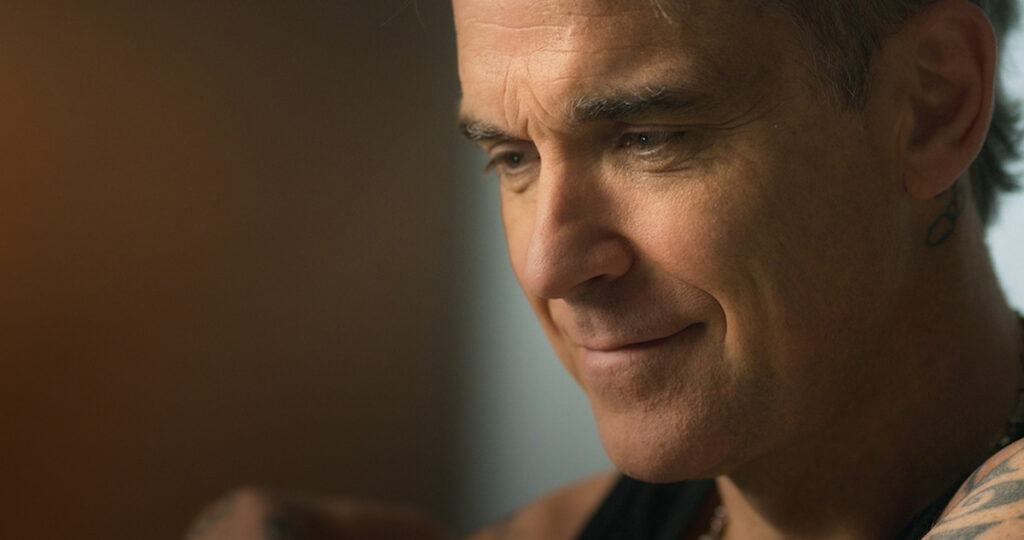Robbie Williams is nearly 50. Lugging his MacBook inside his cozy home, he is anxious. Stored inside that rectangular space-gray machine are thousands of unseen footage of him in the last three decades.
His four-part Netflix documentary, directed by Joe Pearlman, is clearly designed for a massive fan, and not for the mere curious. The docu is not designed to show his biography but to take his fans to his inner world, his psyche, beginning with his days with boyband sensation Take That.
As he lounges on his bed in his tats and undies, Williams is shown a flashback of his life, in chronological order, so you can watch Robbie Williams judge Robbie Williams. The documentary lets the man behind the gifted artist expose his inner demons to you.
This trip down memory lane is up-close and intimate, oftentimes painful and revelatory. It reminds you of Williams’ greatness. Someone that you cannot cage in a boyband because he’s not part of a package because, well, he’s the whole package.
Some artists are meant to go solo. And that is Williams. All that angst, pain, drugs and alcoholism needed a release — thus transmuted into a series of pitch-perfect solo albums here performed live with kinetic energy before 90,000 fans.

Musical act
Fans are drawn to his semi-handsome face, impassioned when he sings the songs that he wrote, delivering melodious lines like an actor starring in a solo musical act. He speaks to the crowd
— belting forlornly of becoming a “Better Man,” then oozing with confidence in “Let Me Entertain You.”
“I’m a singer. I’m a songwriter. I’m a born entertainer,” the present-day Williams says with his spiky gray hair and wrinkled face.
Pearlman intercuts the collection of high-emotion, solo-therapy session with shots of Williams’ mansion, doing close-ups of the beautiful corners of his property as if to assure you that your favorite artist is now peaceful, quiet, safe. Settled.
Then Williams would once again tap the spacebar of his laptop to resume his reminiscing. An old man, now a father of four, looking at the mirror of a young man wrecked in the first few years of his fame, followed by a series of breakdowns and deteriorating mental health.
“Nobody graduates from childhood fame well-balanced,” he muses, speaking like a punk guru with his poetic ruminations.

Trust issues
This is a portrait of a man whose passion became his source of fear. No matter how much he could entertain a massive crowd, negative reviews and bullying from the press pushed him into terrifying panic attacks and trust issues, so severe you could feel it from your screen.
Yet entertaining is what he was born to do, so he keeps coming back to the stage, to the recording studio.
“It’s not for the money. It’s not for the critical acclaim. I want to entertain. That’s what I want to do,” says the bloke from Stoke-on-Trent.
In the docu, we see how fear precedes every new album recording or launching, Williams always wanting to entertain but fearing failure. A perfectionist
— and perfectionists spiral into depression. He never finds joy in fame, only in entertaining.
“Success is diversion. Not healing,” he intones.
Robbie Williams then becomes a case study of a rockstar’s mental health. But as much as it is a tactile story of mental health, it is a story of hope and redemption. A touching, compelling portrait of a human being both gifted and cursed.
The docuseries ends with a heart-wrenching last episode. I doubt a genuine fan will not shed a tear.
When Williams sings, “He just wanted to feel real love, feel the home that I live in,” it’s like an answered prayer.
4.5 out of 5 stars /
on Netflix
